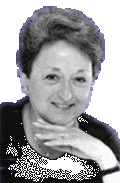Menu


- Elayne Clift
Our Bodies, Ourselves: Menopause, by the Boston Women’s Health Book Collective (Simon & Schuster, NY, 2006). A Review
Elayne Clift, a writer and adjunct professor from Saxtons River, Vt., has been active in the women’s health movement internationally for 25 years. Her latest book is Women, Philanthropy and Social Change: Visions for A Just Society (Ed.,UPNE/Tufts U., 2005).
Back in the late 1970s when I was just beginning to identify as a feminist and to become involved with the U.S. women’s movement, I came across a newsprint copy of the first Our Bodies, Ourselves, the original guide to women’s health that had been written by members of the now world-famous Boston Women’s Health Book Collective. Little did I know that I was in possession of a collector’s piece; I am ashamed to admit that I actually threw the publication away when I replaced it with the first trade paperback edition published not long after by Simon & Schuster.
In the interest of full disclosure -- and with great pride ‚Äď I should reveal that I subsequently worked with many members of the Collective when I became program director of The National Women‚Äôs Health Network in Washington, DC. Nothing in my entire career will ever equal the exhilarating experience of sitting in a room full of women like Judy Norsigian and Norma Swensen, founding members of the Collective, as they discussed women‚Äôs health issues from an informed and decidedly political perspective.
The Boston Women’s Health Book Collective, made up originally of a dozen women who met during a women’s liberation conference in Boston in 1969, has grown into one of the most trusted sources of information on women’s health throughout the life cycle. Their famous book has been revised and published regularly since 1971. It became a bestseller in 1976 and has been translated into numerous languages including Armenian, Bulgarian, Serbian and Romanian.
Women’s groups in Korea and India have been inspired by it to produce their own books (including one for Tibetan nuns).
Now comes Our Bodies, Ourselves: Menopause, a title which launches a series that will provide in-depth information about specific topics in women’s health. (Next year’s book will focus on pregnancy and childbirth.) The book builds upon the knowledge and perspective that made Our Bodies, Ourselves such a trusted resource, addressing the physical, emotional and social aspects of menopause. It is the most comprehensive, up-to-date book of its kind on the subject.
In the narrative tone of its predecessor, Our Bodies, Ourselves: Menopause provides readers with reliable, current information and enables women to make sound, informed decisions given individual circumstances. The book covers such topics as prevention strategies for managing transition, hormone treatment, what really helps with hot flashes and insomnia, the debate about female sexual ‚Äúdysfunction‚ÄĚ at midlife, and what women need to know about heart disease and osteoporosis. It also addresses several myths (like the one that says oral contraceptives put women at risk for GYN cancers) and offers useful sidebars such as ‚ÄúWhen to get a Pap.‚ÄĚ It has photos, diagrams, and personal testimonies. And in a section called ‚ÄúKnowledge is Power,‚ÄĚ it discusses ‚ÄúThe Politics of Women‚Äôs Health,‚ÄĚ a deeply important context usually overlooked in health guides.
In sum, Our Bodies, Ourselves: Menopause is a clear, accessible, balanced and important book for midlife women and the people who care for and about them. With only a modicum of personal and professional bias, I heartily recommend it. I know some of the women who contributed and edited it and believe me, there’s no one you can trust more when it comes to women’s health, lives, or experience.
